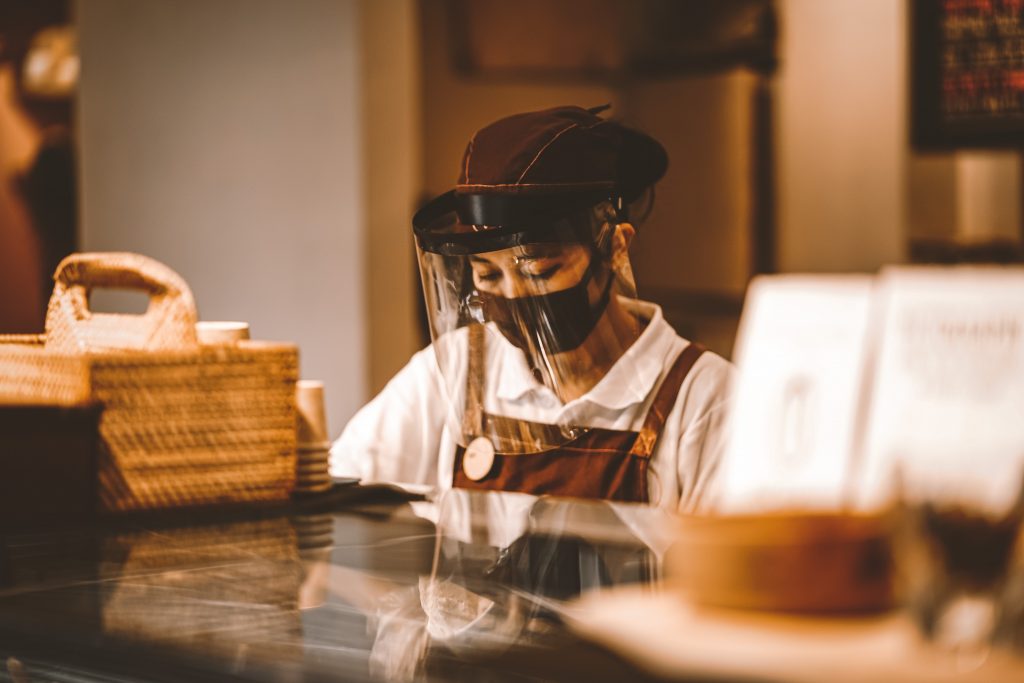Marine Furet introduces the new theme for the welsh agenda new series, dedicated to work, and reflects on the changing meaning of labour.
Two years into the pandemic, adaptations we once believed to be temporary accommodations have ushered in habits of living and working that now seem here to stay. From the way I interact with my colleagues, to the way you inhabit your home, to our new ways of using – or deserting – urban centres, these new forms of working have led some, often among the privileged few, to hail the start of a truly modern way of working. In March and April, the welsh agenda therefore turns to work and its place in contemporary society in Wales and beyond.
The spread of technologies enabling so-called ‘new ways of working’ has undeniably led to a global transformation of the way we relate to our careers in the white-collared world. Whether employees express nostalgia for office days or enjoy a more flexible approach to the way they organise their day and manage their work-life balance, the labour force has had to adapt quickly to a set of rules and regulations that have little to do with the conditions in which they previously expected to engage in professional activity. Our work identities have changed – drab offices replaced by the colourful backgrounds of our living-rooms and kitchens or, if you feel so inclined, artfully arranged bookshelves. Is this the face of modernity?
The pandemic has also given us an opportunity to reflect on the link between labour and its value – and the extent to which it is currently reflected in wages.
Yet this is obviously not the full story. What about the workers who lost their jobs to lockdown and are now faced with the prospect of retraining or underemployment? What about those who were and remain subject to pressures, formal and informal, to come to their workplace in the face of potentially considerable risk to their health and that of their family, and that of colleagues and customers? By highlighting the contrast between jobs that can or cannot be done at home, the latter so often proven to be essential, the pandemic has also given us an opportunity to reflect on the link between labour and its value – and the extent to which it is currently reflected in wages.
No discussion of work in the modern world can bypass another looming issue. The green agenda has raised hopes for ‘green jobs’ that will make a positive environmental impact while securing a fairer economic future. Yet, in our report Turning Rhetoric into Reality: Decarbonising the Foundational Economy, we raised concerns about the gap between Wales’ existing labour force and that required to achieve our net zero ambitions by 2050. This is, once again, a reminder to look at those left behind by discussions of work and the climate breakdown rooted in utopian visions of a comfortingly remote and technologically enhanced future.
Robust debate and agenda-setting research.
Support Wales’ leading independent think tank.
In the absence of a silver bullet, advocates of the four-day week, post-growth or post-work thinkers and theorists of reproductive labour have been more and more vocal in their call to question the importance of work and ask, in short, if work really is worth it. It has become harder to separate terms like productivity and growth from others like environmental impact and burnout.
If caring sustains and makes our ways of life possible, this has not, so far, resulted in looking at care as a highly skilled job
The time we have spent at home has also led us to take a harder look at the judgement of value implicit in our current ideas of what counts as work worthy of a wage. If caring sustains and makes our ways of life possible – our 9-5, after all, can only carry on if someone is there to look after the children or others who need care – this has not, so far, resulted in looking at care as a highly skilled job, let alone one deserving of appropriate remuneration. There are reasons to be hopeful, if maybe not cheerful, in the Welsh Government’s pilot of a basic income scheme for care leavers, but the conversation around what work should look like to be fit for the present remains an open and, by nature, iterative one.
In this complex landscape, the welsh agenda will be looking to publish articles that will examine the topic of work and ask questions about what it can, should, or will look like in Wales.
We ask that submissions engage with our different strands. We are looking for Politics and Policy pieces that deal with work from a high-level perspective and address issues or potential reforms that might influence the world of work; People and Places articles that tie their reflection on labour to a place or community in Wales or beyond; Voices pieces that offer an individual perspective on the world of work; and Culture articles that tackle new and old artworks that offer innovative or noteworthy representations or reflections on work.
We welcome contributions that will engage with work from various angles that may include but are not limited to:
- Skills, education and training
- Workers’ rights
- ‘Traditional’ forms of work: manual labour, farming, and disappearing industries
- Work and identity: gender, age, ethnicity, disability and parenthood in the workforce
- Wages and value
- Flexible/hybrid work
- Jobs of the future and the framing of ‘green jobs’
- Creativity at work and the creative economy
- Waged versus freelance work
- Business and entrepreneurship
- Productivity and post-growth imaginaries
- Other countries’ approaches to work
- Reproductive labour, domestic work and care
- Representations of work and leisure
You can get in touch and send pitches, early drafts or articles to [email protected].





